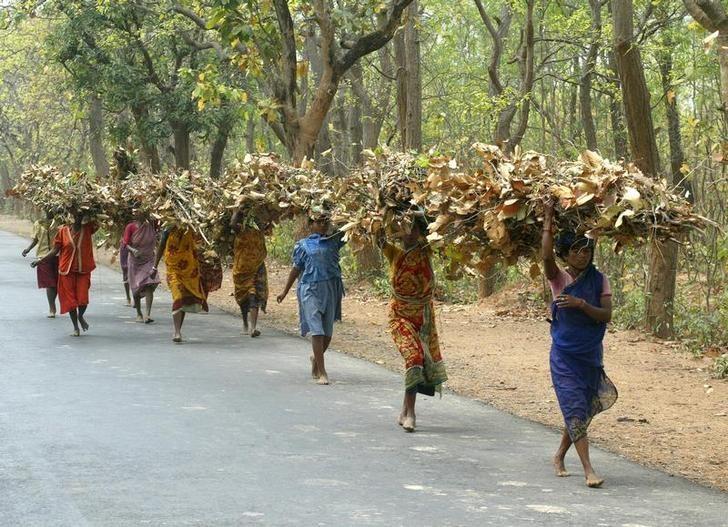Book available on Amazon: Link ……..https://amzn.in/d/2bUvej0
The Schedule Castes Tribes and Other Traditional Forests Dwellers Act, 2006
The Scheduled Castes and Tribes and Other Traditional Forest Dwellers (Recognition of Forest Rights) Act, 2006 is an important Indian law that aims to address the historical injustice and discrimination faced by forest-dwelling communities in India, particularly the Scheduled Castes and Tribes. The act provides for the recognition and vesting of forest rights and occupation in forest lands in forest-dwelling Scheduled Castes and Tribes and other traditional forest dwellers who have been residing in such forests for generations but whose rights have not been recognized.
SOCIAL ASPECT LAWS
Raj K.
2/9/20232 min read


The Scheduled Castes and Tribes and Other Traditional Forest Dwellers (Recognition of Forest Rights) Act, 2006 is an important Indian law that aims to address the historical injustice and discrimination faced by forest-dwelling communities in India, particularly the Scheduled Castes and Tribes. The act provides for the recognition and vesting of forest rights and occupation in forest lands in forest-dwelling Scheduled Castes and Tribes and other traditional forest dwellers who have been residing in such forests for generations but whose rights have not been recognized.
The act was enacted to address the long-standing demands of the forest-dwelling communities for recognition of their rights over forest lands and resources that they have been using and conserving for generations. The act recognizes the rights of the forest-dwelling communities to own, use and manage forest resources, including minor forest produce, water, grazing grounds and cultural sites.
The act recognizes five categories of rights, namely, (i) right to hold and reside in forest lands, (ii) right to collect, use and dispose of minor forest produce, (iii) right to traditional occupation and use of land for livelihood purposes, (iv) right to community fishing and gathering of small and minor water bodies, and (v) right to protect, conserve and manage community forest resources. The act provides for the constitution of a three-tier grievance redressal mechanism at the village, sub-divisional and district levels to ensure that the rights are exercised in a transparent and accountable manner.
The act requires the state governments to identify the forest-dwelling communities, and their rights over the forest lands and resources, and to take steps for their recognition and vesting. The state governments are also required to prepare and publish maps showing the boundaries of the forest lands and the rights of the forest-dwelling communities over such lands. The act provides for the constitution of a Forest Rights Committee at the village level to verify and recognize the rights of the forest-dwelling communities and to resolve disputes relating to the recognition and vesting of such rights.
The act is seen as a major step towards addressing the historical injustice faced by the forest-dwelling communities and ensuring their livelihood and well-being. The act has the potential to empower the forest-dwelling communities, who have been marginalized and dispossessed of their lands and resources, and to promote sustainable development and conservation of the forests. The act is also seen as a step towards strengthening the rights of the forest-dwelling communities over their lands and resources and towards their inclusion in the development process.
However, the implementation of the act has been slow and uneven, and there have been concerns about the lack of effective implementation and the violation of the rights of the forest-dwelling communities. The lack of awareness about the act and the rights recognized under the act, as well as the lack of capacity of the forest-dwelling communities to exercise their rights, have been major challenges in the implementation of the act.
In conclusion, the Scheduled Castes and Tribes and Other Traditional Forest Dwellers (Recognition of Forest Rights) Act, 2006 is an important Indian law that aims to address the historical injustice and discrimination faced by forest-dwelling communities in India, and to recognize and vest their rights over forest lands and resources. The act is a major step towards empowering the forest-dwelling communities and promoting sustainable development and conservation of the forests. However, the implementation of the act has been slow and uneven, and there is a need for effective implementation and protection of the rights of the forest-dwelling communities.
North India - Delhi NCR
UTTAR PRADESH : B-122, Sector-Omicron-1A, Greater Noida, Gautam Budh Nagar, Uttar Pradesh, India - 201310
Hours
I-V 9:00-18:00
VI - VII Closed


Copyright
We have @SarvePermits & Legal Advisory Pvt Ltd's original, exclusive and copyright protected content for you. Don't miss out on the opportunity and get access to our informative content today! #CopyrightProtected #OriginalContent #SarvePermitsAndLegal. If you have any questions about using our content, please contact us for permission. #copyright #protectourproperty #IP #SarvePermitsAndLegalAdvisoryPrivateLimited.
Western India - Maharashtra
MUMBAI : Office No.- 1408, Ghanshyam Enclave, Opp. Lalji Pada Police Station, Link Road, Kandivali West, Mumbai
South India - Karnataka
BANGALORE : B-2, Ground Floor, Museum Terrace, 29 Museum Road, Bangalore-560001
RESIDENCE : 50808, Tower 5, Bhartiya City Nikoo Homes 1, Thanisandra Road, Kannur, Bangalore - 560064
Eastern India - Jharkhand
BOKARO : 689, Sector-1/C, Bokaro Steel City, Dist.- Bokaro, Jharkhand -827001
